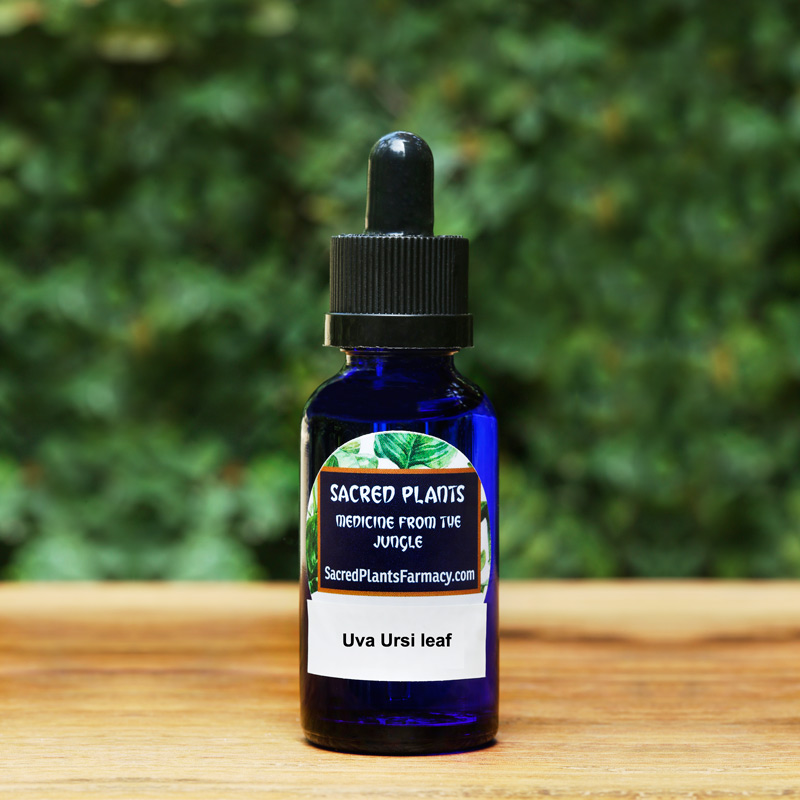- Reduces swelling in urinary tract.
- Reduces swelling of bladder and urethra from cystitis.
- Soothes stomach upset.
- Boosts the immune system.
- Reduces inflammation.
- Detoxing the body.
- Promotes healing
- Constipation.
The primary health benefit of uva ursi as a medicinal herb is its use in treating urinary tract infections (UTIs) and bladder infections (cystitis). There have been several studies that show uva ursi may be beneficial in treating UTIs and one study showed that when combined with dandelion root, uva ursi may even prevent recurrent UTIs. However, the study involved a very low number of participants.
As a topical (applied to the skin) agent, uva ursi was found to be effective as a skin lightening agent in a pilot study of healthy adults. Hyperpigmentation was inhibited in four out of six study participants who were exposed to ultraviolet light after using a topical application of a derivative of uva ursi (called arbutin).
Although it’s possible that uva ursi could help with various ailments, more evidence is needed to determine its safety and effectiveness. Various symptoms and conditions that are thought to be helped by uva ursi include:
- promoting healing
- soothing stomach upset
- boosting the immune system
- reducing inflammation
- detoxifying the body
- swelling of the bladder and urethra
- swelling of the urinary tract
- constipation
- kidney infections
- bronchitis
Research Studies
One research review examined 14 over-the-counter products to evaluate each one’s ability to inhibit an enzyme that is involved with Staphylococcus saprophyticus (a common urinary tract pathogen). This enzyme is called urease.
Only one of the 14 preparations in the study was able to significantly lower urease (by more than 75 percent). That preparation was uva ursi combined with green tea.
Another study found that “the antibacterial and astringent benefits [in uva ursi] plus research indicating that uva ursi can effectively treat and prevent urinary tract infections, suggest this herb can be helpful in treating urinary incontinence.”
Uva ursi is also known for its diuretic properties—this refers to the body’s ability to flush out fluids, which helps rid the bladder of pathogens (disease-causing germs). E. coli is a common pathogen, particularly in UTIs experienced by females. Research has suggested, therefore, that uva ursi can help prevent E. coli as well.
It’s important to note that although research on uva ursi’s prevention of UTIs is favorable, for long-term use, uva ursi is not currently recommended as an effective prevention supplement.
Possible Side Effects:
Although uva ursi is considered relatively safe for adults when taken by mouth for a short duration, long-term use and taking high doses may be very dangerous. The side effects of short-term use may include:
- Nausea
- Vomiting
- Upset stomach
- Discoloration of the urine (greenish-brown)
- Insomnia
- Irritability
Long-term use and/or taking high doses of uva ursi may result in:
- Liver damage
- Kidney damage
- Breathing difficulties
- Eye problems
- Seizures
- Death
Signs of toxicity to look for include:
- Ringing in the ears (tinnitus)
- Nausea and vomiting
- Sense of suffocation
- Shortness of breath
- Convulsions
- Delirium
- Collapse
Contraindications:
Contraindications are situations that shouldn’t be combined with certain drugs, herbal supplements, vitamins, or medical treatments. Uva Ursi is contraindicated for those who have specific medical conditions or when taking particular types of medication. These include:
- people taking lithium
- people with kidney disorders (uva ursi can worsen kidney problems)
- people who are pregnant or breastfeeding (uva ursi could induce labor and it’s not safe in children—safety for nursing babies hasn’t been established)
- those with high blood pressure (uva ursi changes fluid levels in the body which must be highly monitored in those with high blood pressure)
- those with Crohn’s disease, ulcers, or digestive problems
- people with liver disease (uva ursi could worsen symptoms of liver disease)
- people with retinal thinning
- anyone taking nonsteroidal anti-inflammatory drugs (NSAIDs) and corticosteroids
- anyone taking iron supplements (a person who takes iron supplements should take them at least 2 hours before or 2 hours after taking uva ursi)
Safety Measures:
There are several safety measures that should be followed when taking uva ursi. Always consult with a physician or other healthcare provider before taking uva ursi because of its potentially toxic side effects, such as liver damage.
Ask your healthcare provider about how to ensure (with diet or supplements) that your urine is alkaline because uva ursi is not as effective with an acidic urine (acidic PH in the urine destroys its antibacterial effect).
Substances that make the urine more acidic, such as vitamin C, cranberry juice, orange juice, and other citrus fruits and juices should be avoided. Consult with a doctor to see if it’s safe for you to take uva ursi at the first sign of a UTI—that is when the herbal supplement is most effective.
Dosage and Preparation:
Uva ursi is available commercially as crushed leaf and powder preparations, including tea, tinctures, and capsules to be taken by mouth. Derivatives of the plant are also used for topical skin preparations. Only the leaves are used—not the berries—in herbal medicinal preparations.
Due to the potential for toxicity, a physician should be consulted before taking uva ursi. Experts recommend avoiding taking the herb for longer than two weeks (conservative sources recommend limiting the duration of uva ursi to no more than five days) and no more than five times a year.






